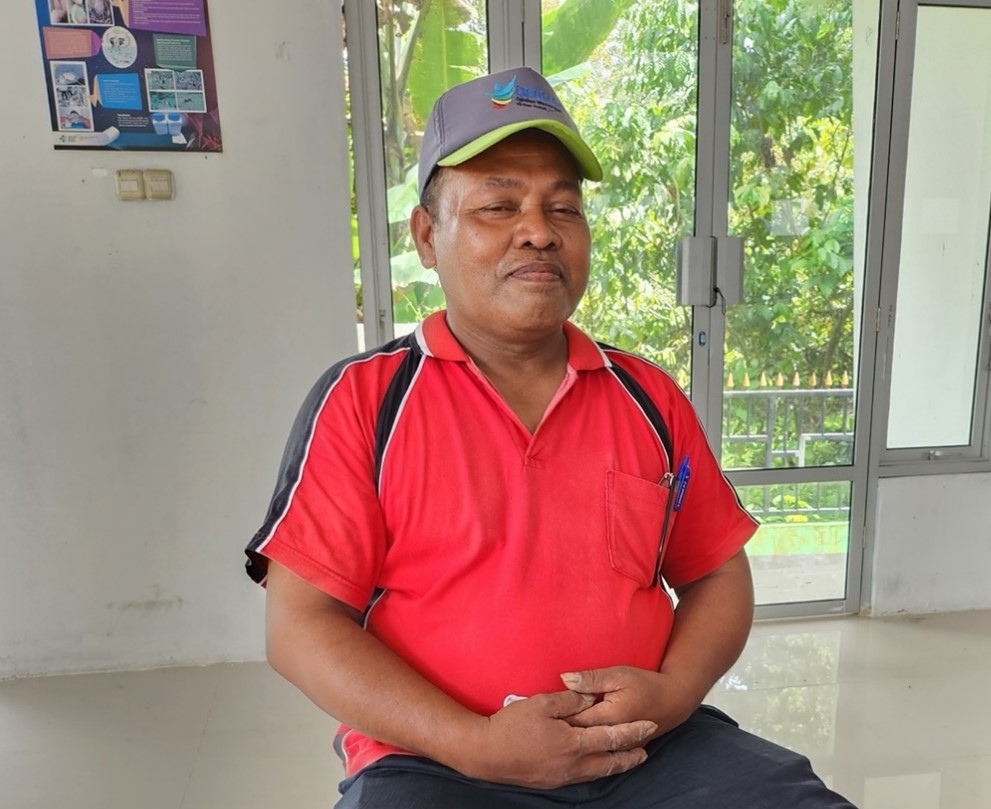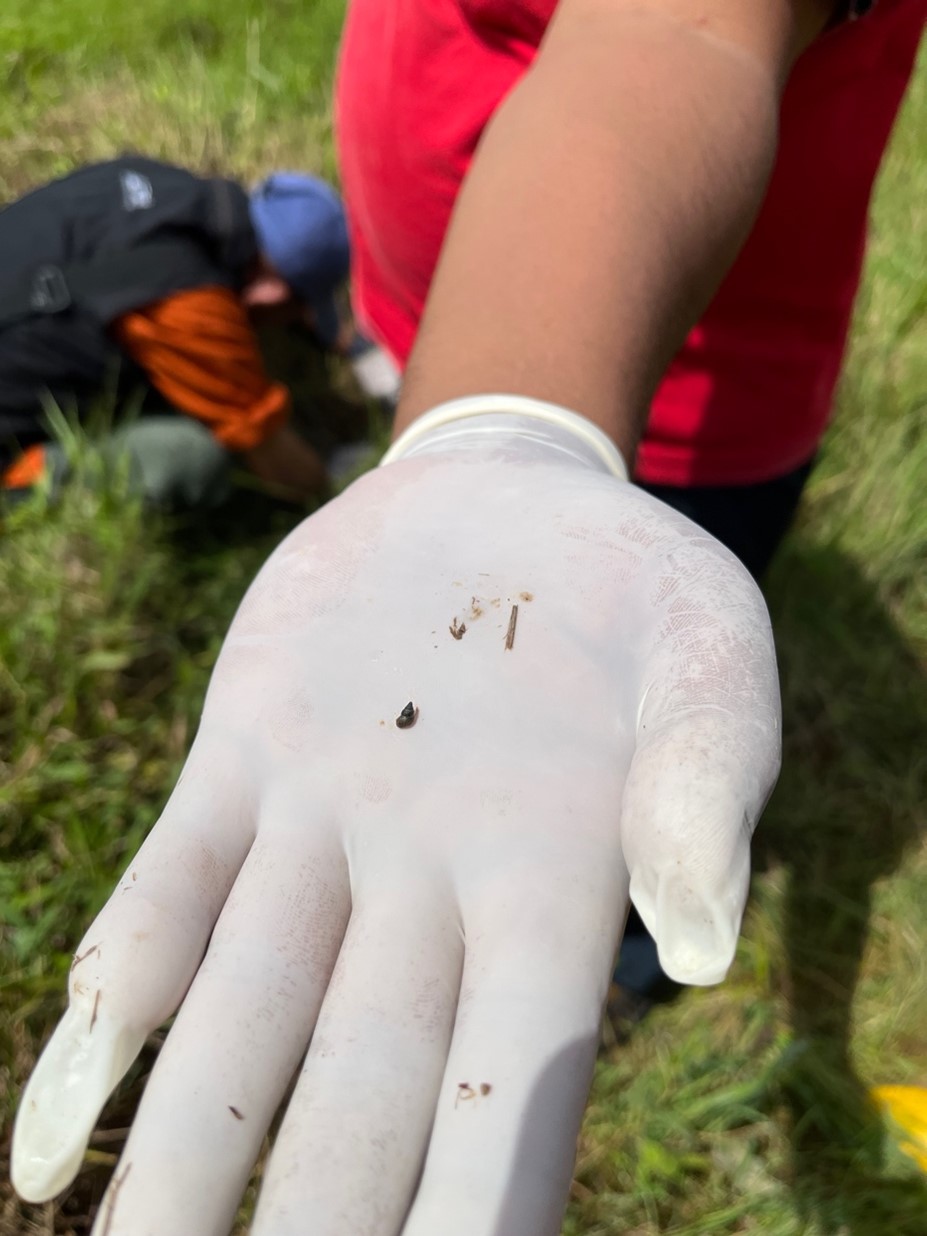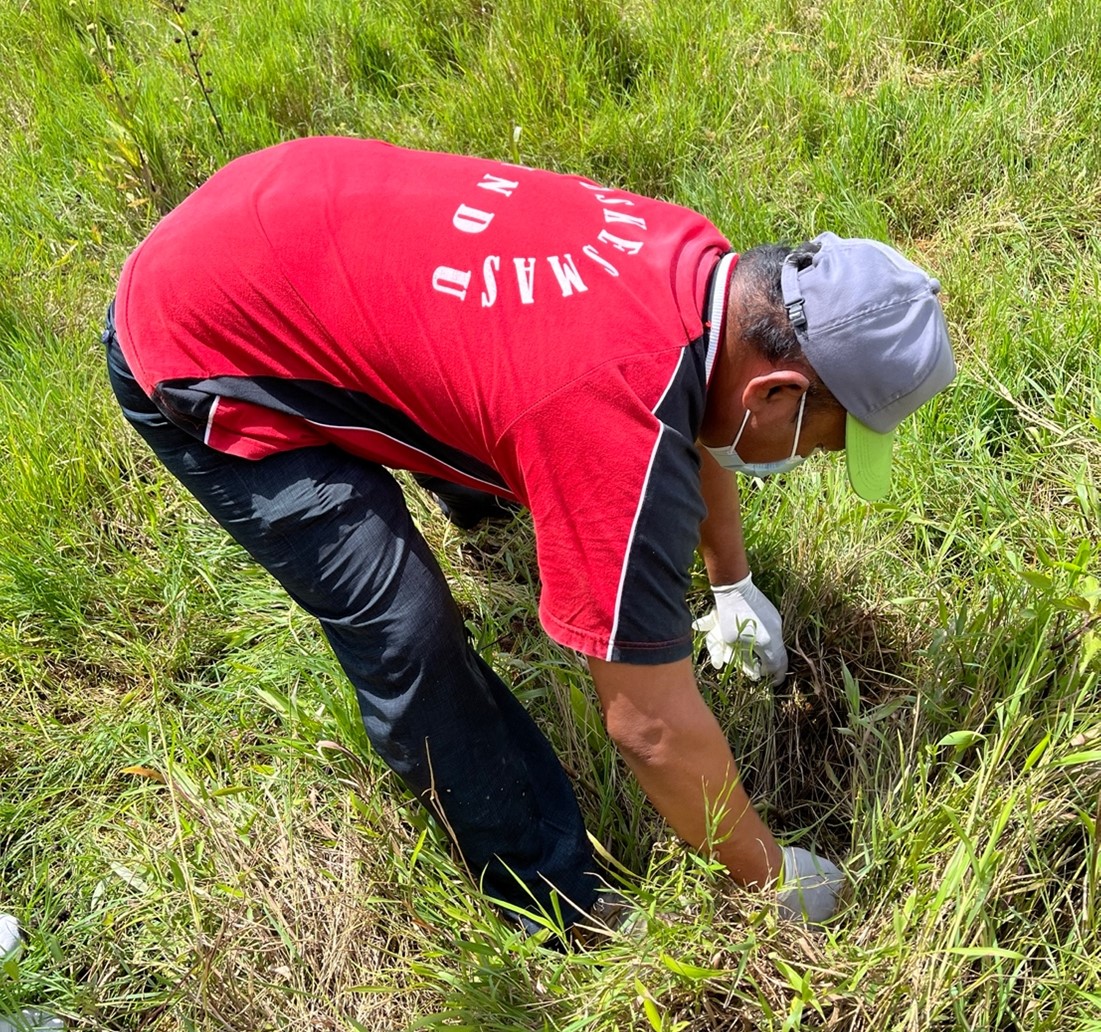In the heart of Central Sulawesi, nestled within the well-known National Park of Lore Lindu, lies the Lindu Lake. A place of hope, solace, and healing for many, Lindu is also the home of Berling Lago, a registered nurse and the tenacious programme manager of the region's schistosomiasis initiative. Affectionately known as “Pak Keong” or “the snail guy”, Berling has served his community selflessly since his appointment by the provincial government in 2017.

Berling Lago embodies resilience, dedication, and a deep-rooted commitment to the battle against schistosomiasis. Credit: WHO/Ajib Diptyanusa
Based at the schistosomiasis laboratory in Lindu, Berling has spent the past six years in dedicated service to his community. For him, this work is not just a profession but a calling. He supervises stool survey and laboratory procedures for stool examination, and he manages the major and challenging task of environmental surveillance, which includes snail survey and mapping transmission foci areas. His off-road bike, a trusty companion, transports him across different terrains, aiding his tireless efforts in combating schistosomiasis.
Caused by parasitic worms called Schistosoma japonicum that live in freshwater snails, schistosomiasis can lead to human death due to damage of intestines, liver, lungs, and the nervous system. These are, however, rarely found in Indonesia’s endemic villages due to mass drug administration activities. In Indonesia, the worms are still endemic in only 28 villages in the highlands of Lindu, Bada, and Napu in Central Sulawesi.
Berling is no stranger to challenges. His team, originally comprising two surveillance staff and five laboratory analysts, is now short-staffed, since three analysts were re-assigned to other duty stations. Despite the odds, he remains undeterred, often inviting personnel from the primary health centre (Puskesmas) to assist in surveillance activities. One of the most significant challenges Berling faces is the limited funding, which restricts the scope of the snail survey to only one or two foci. The heavy rain, a frequent occurrence in the area, tends to displace the snails, creating an ever-shifting battlefield.

Oncomelania hupensis lindoensis, the minute snail that serves as an intermediate host of schistosomiasis, quietly plays a pivotal role in the transmission cycle. Credit: WHO/Ajib Diptyanusa
Nevertheless, Berling continues to find hope and support in unexpected places. The community health workers and the local church have been particularly helpful in mobilising the community and promoting clean and healthy living behaviours.
Berling's aspirations are clear: to contribute to the elimination of schistosomiasis by 2030. He hopes to have a voice in the district annual budget planning to prioritise environmental management for snail control, including sewage cleaning and improving the drainage system of paddy fields. He also wishes to invest in recruitment and training of new staff to ensure the continuity and effectiveness of the programme.
"Our battle is not just against a disease, but against time, resources, and nature itself. But we won't back down, we will keep pushing forward," he said.

Finding snails in abandoned fields in Lindu is one of Berling Lago’s major roles in the schistosomiasis elimination programme. Credit: WHO/Ajib Diptyanusa
In the face of adversity, Berling embodies resilience, dedication, and a deep-rooted commitment to his community. His story is beyond a battle against a disease, it is also about the power of hope, perseverance, and the indomitable spirit of service.
Written by Dr Ajib Diptyanusa, National Consultant for Malaria, and Achmad Naufal Azhari, National Professional Officer for Neglected Tropical Diseases, WHO Indonesia.
